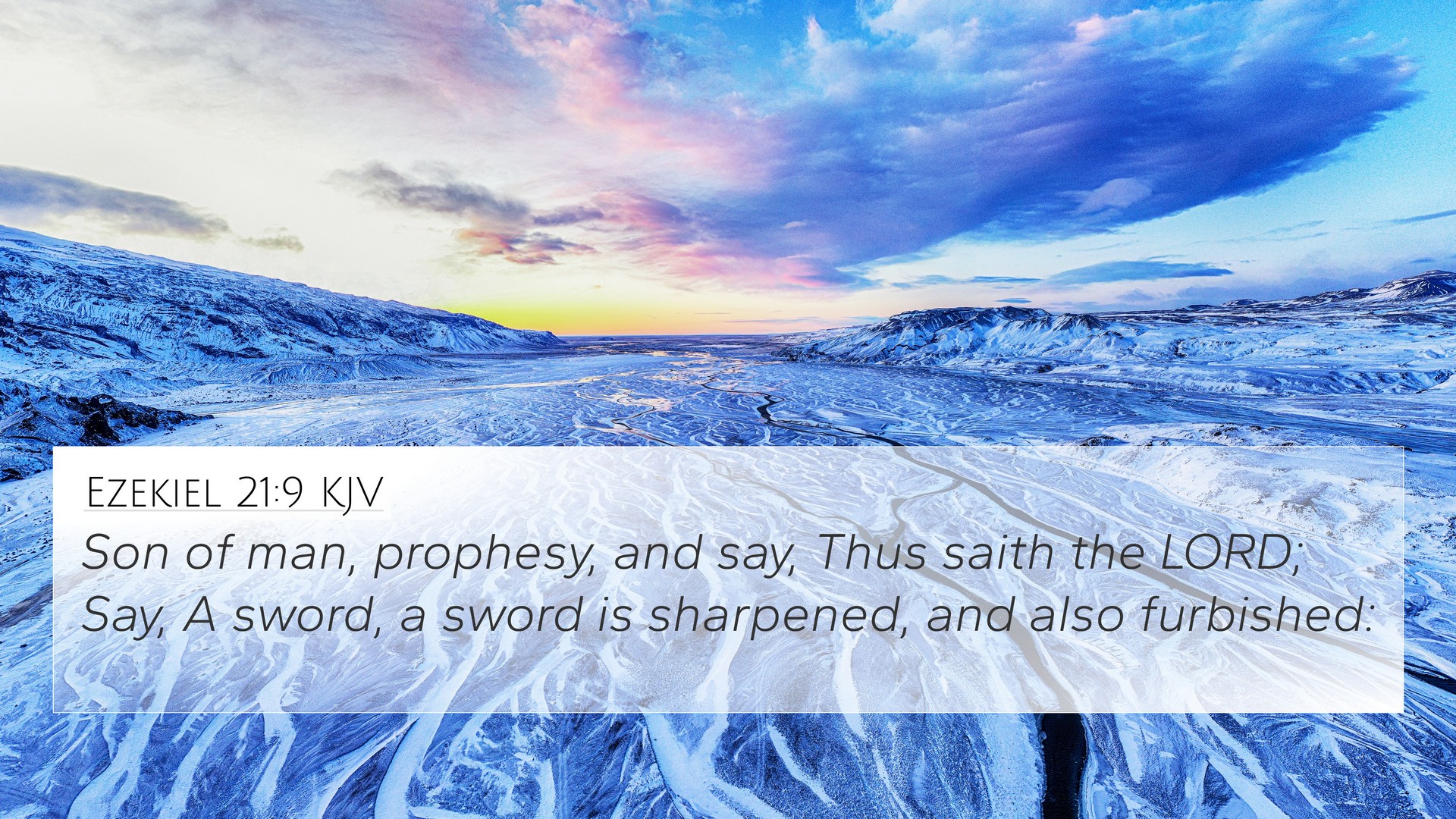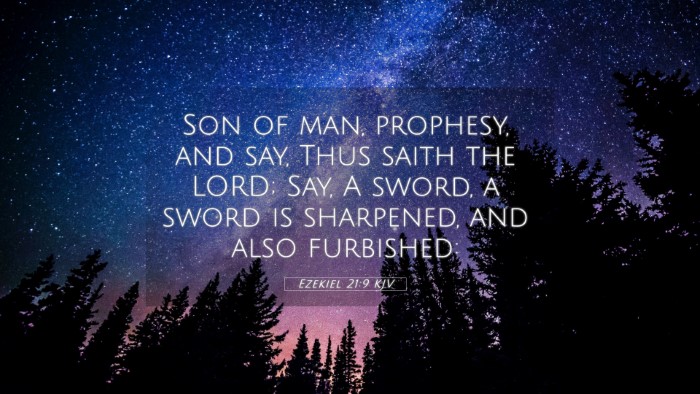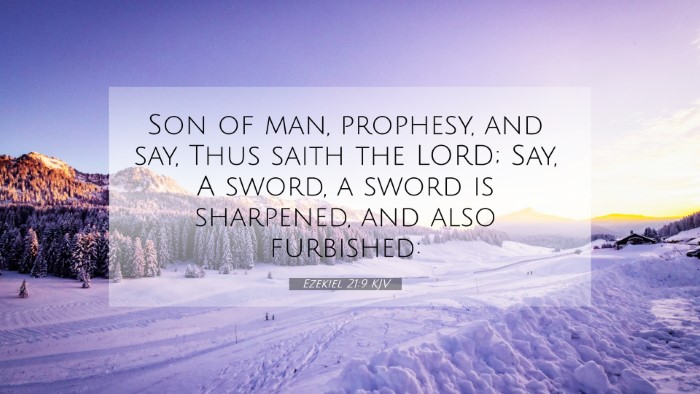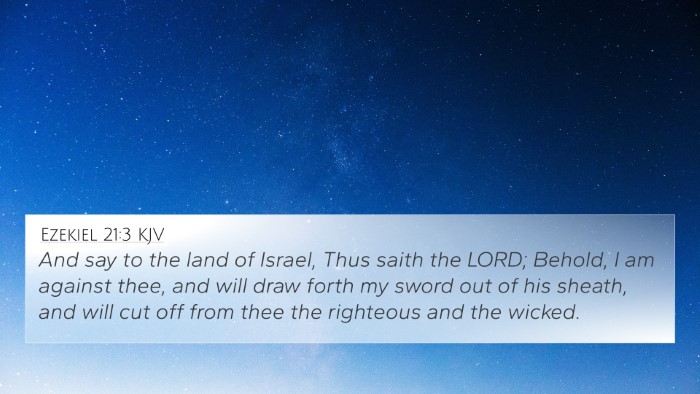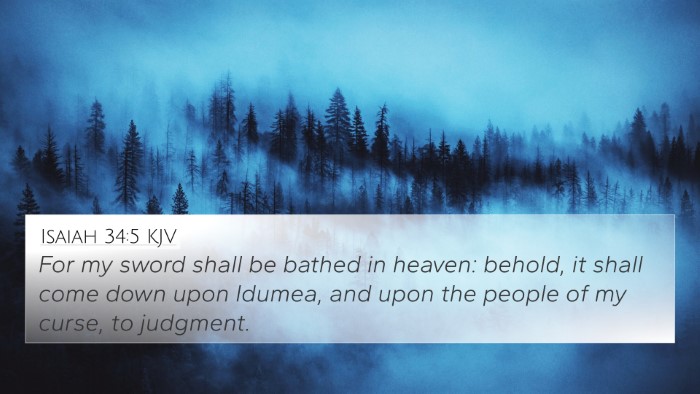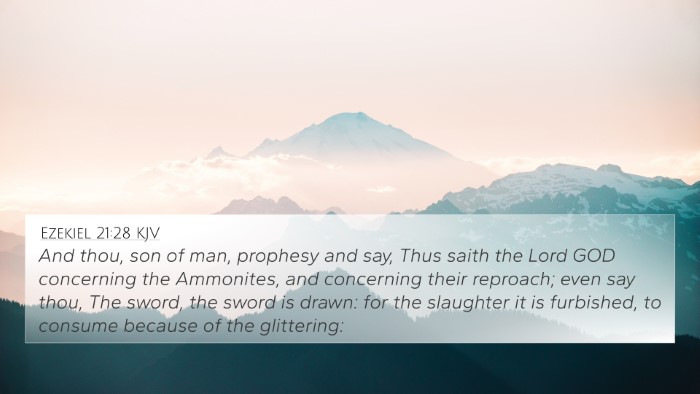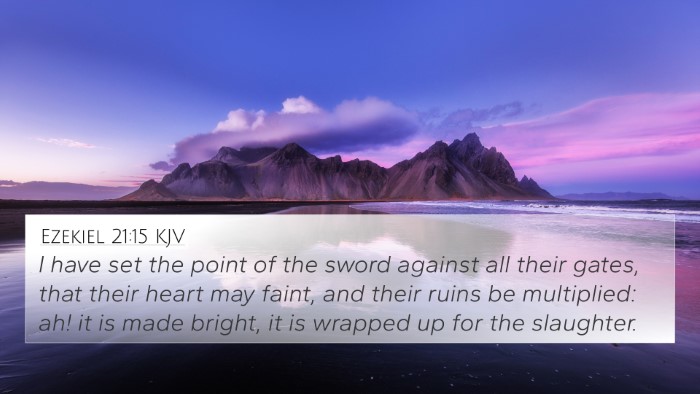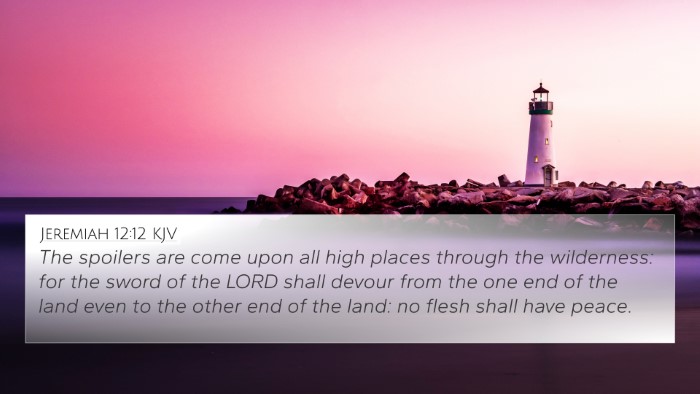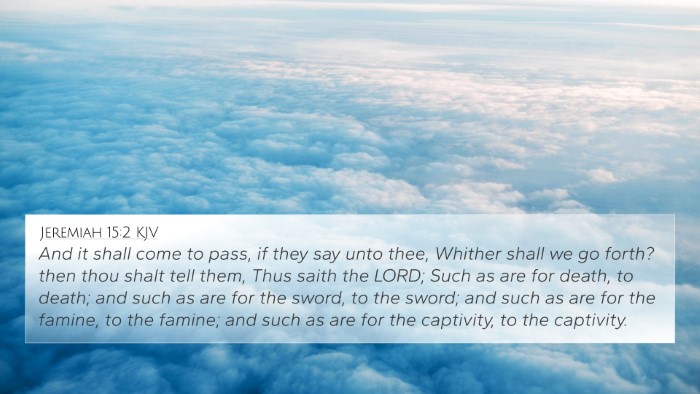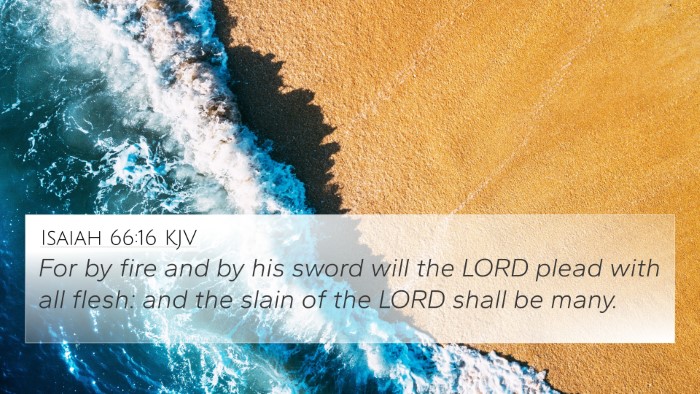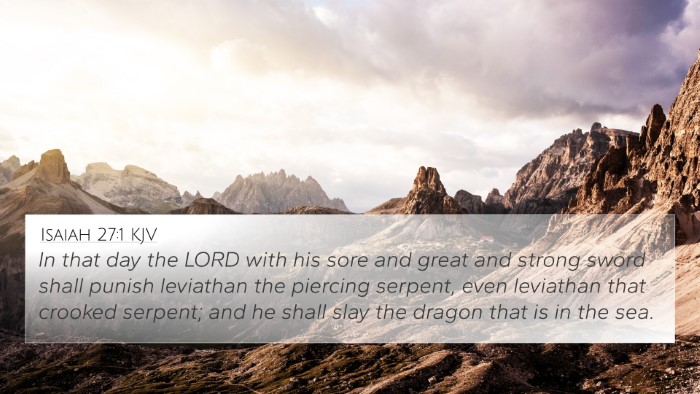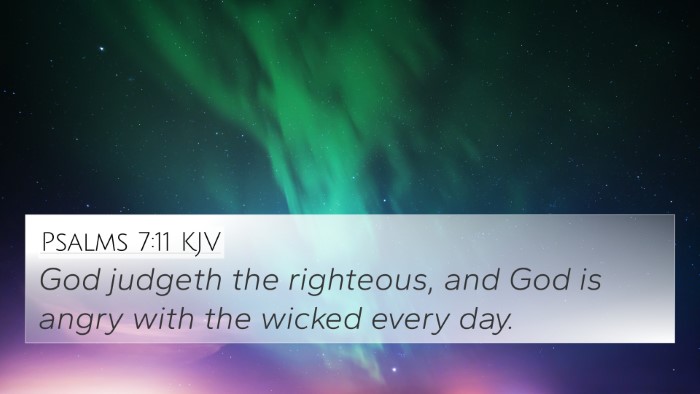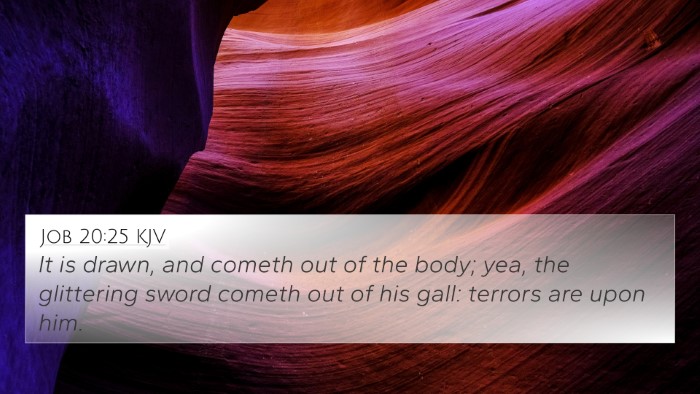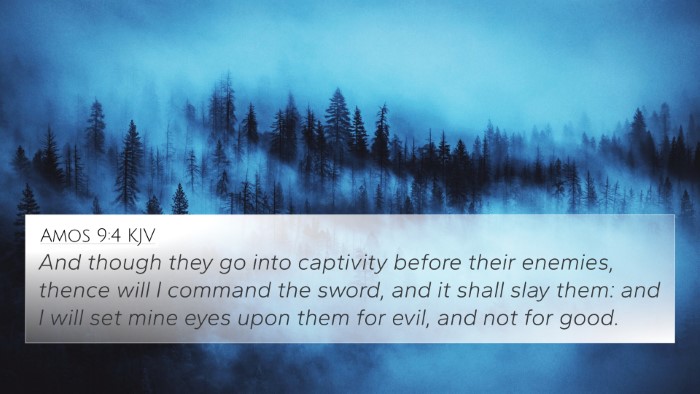Ezekiel 21:9 - Meaning and Interpretation
Verse: "Son of man, prophesy and say, Thus saith the Lord; Say, A sword, a sword is sharpened, and also furbished."
Overview
The verse Ezekiel 21:9 is part of a prophecy delivered by the prophet Ezekiel to the people of Israel. It uses the metaphor of a sword to convey God's judgment and impending destruction due to their disobedience and sinfulness. This passage highlights the seriousness of God's message against the nation and serves as a warning of judgment.
Commentary Insights
-
Matthew Henry:
Matthew Henry emphasizes God's sovereignty in wielding judgment. The sword represents not just destruction but also the purification of God's people. The sharpening of the sword signifies readiness while furbishing suggests preparation for execution of divine judgment.
-
Albert Barnes:
Albert Barnes notes that this verse sets the tone for the entire chapter, which details the consequences of turning away from God. The imagery used points to the certainty of God's plans, illustrating that the time for reckoning has come for the nation of Israel, specifically in regard to their idolatry and rebellion.
-
Adam Clarke:
Adam Clarke discusses the prophetic aspect of Ezekiel's message, highlighting the notion of impending doom. He interprets the sword as not merely an instrument of war but also as a divine symbol of judgment that brings about a need for repentance among the people.
Thematic Connections and Cross-References
This verse serves as a critical point of connection within the broader narrative of Scripture. Here are some important cross-references that relate to the themes presented in Ezekiel 21:9:
- Jeremiah 47:6-7: Discusses the sword of the Lord being sharpened for judgment.
- Isaiah 10:5: Describes Assyria as a rod of God's anger, reinforcing the imagery of a divine tool for judgment.
- Revelation 19:15: Portrays a sword that issues from the mouth of Christ, highlighting the ultimate judgment.
- Hebrews 4:12: Refers to the Word of God as living and active, sharper than any two-edged sword, which directly correlates with the idea of God's judgment.
- Ezekiel 14:17: Speaks of a sword bringing destruction upon Jerusalem, emphasizing God's judgment within the context of prophecy.
- Matthew 10:34: Jesus mentions He has come to bring a sword, indicating division due to the truth He speaks.
- Lamentations 2:21: Reflects on the devastation caused by God's judgment through the metaphor of a sword.
Understanding the Purpose of the Prophecy
The purpose of this prophecy in Ezekiel 21:9 is to awaken the people of Israel to their dire circumstances. The use of the sword as a symbol serves multiple functions:
- Warning: It serves as a clear warning that judgment is imminent and that they must turn from their sinful ways.
- Awareness: It calls for an awakening to the reality of their situation; the furbished sword indicates that their time is running out.
- Repentance: The imagery encourages the necessity of repentance among the people in response to God's divine warning.
SEO Content
This interpretation of Ezekiel 21:9 reflects vital themes in the Bible, establishing connections between various biblical texts. For those who seek to explore the connections between Bible verses, understanding Ezekiel's message is critical. How do these warnings echo throughout Scripture and what can we learn from this cross-referencing Biblical text? The Bible verse cross-references provided illustrate the recurring theme of judgment and the necessity of obedience to God.
Tools for Further Study
If you wish to dive deeper into the cross-referencing Bible study, consider using the following tools:
- Bible Concordance: A comprehensive listing of words and their occurrences throughout the Bible.
- Cross-Reference Bible Study: Techniques for analyzing and understanding parallel texts across the Scriptures.
- Bible Reference Resources: Materials to aid in the exploration of inter-Biblical dialogue and thematic connections.
